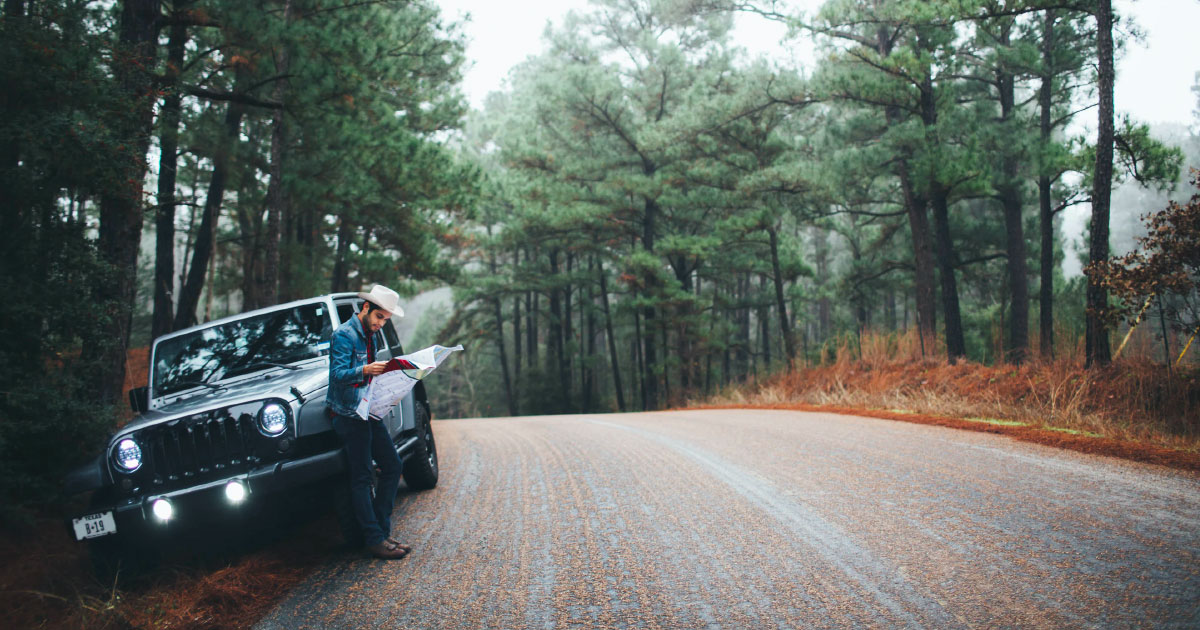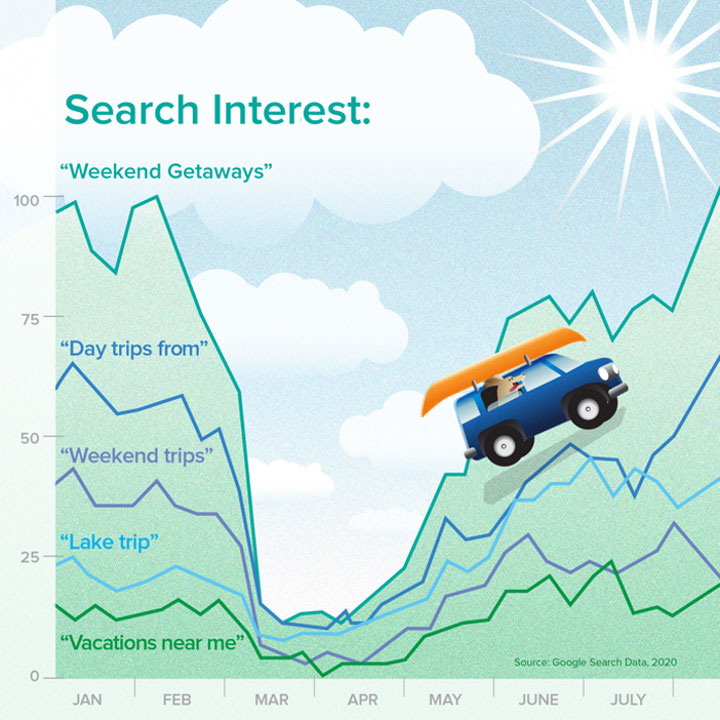The year was 2020, and that summer we went on our family road trip. My daughter was TikToking while my husband binged the latest true crime podcast and I thought the world the world had changed forever…
Sound familiar? That’s because things have changed and for the hospitality industry, they’ve changed in a major way. We’ve never seen the devastation to the travel sector that we have this year — not after September 11th or during the Great Recession. Those challenging times pale in comparison to the impacts of this global pandemic. But we’re resilient, and nothing has stopped Americans from getting in that summer vacation, at least for those lucky enough not to have suffered from the economic or health blows of the coronavirus.

Throughout this year we’ve seen life change in a major way. The “new normal” has found people filling their time with new hobbies. But what’s surprising is that these “new” hobbies are actually a return to more traditional activities. Instead of modern technology setting the trends, baking banana bread became the “it” thing to do at home. People have taken on home renovations, put their new woodworking skills to the test or learned to play an instrument.
It’s not surprising that this cultural shift to the simple things in life has impacted the way we’re traveling. The New York Times dubbed 2020 “The Year of the Road Trip” for good reason. With concerns about the safety of air travel and since being banned from visiting a large portion of the rest of the world, Americans returned to the roads for that great American road trip once more. And why not? Many of us are no longer bound by the parameters of an office, and this desire to embrace the simple things has led to a new fascination with outdoor experiences. In fact, Google searches for “camping near me” are at an all-time high.
Alright, so you get it, Americans are hopping in their station wagons, I mean SUVs, and heading to the great outdoors, but are they flying? Unfortunately, and unsurprisingly, air travel has been slow to recover. After tanking significantly in March through May, at the start of pandemic, it has only rebounded by 17% in the US (Sojern, August 2020), with remote mountain destinations seeing the bulk of flyers as people escape crowded cities. We’re expecting road trips to be the top way to travel through the rest of the year into 2021.
RVing — what many of us once thought of as a retirement activity, or something for our grandparents — has experienced a resurgence. RV sales and rentals are continuing to climb. These vehicles offer the opportunity to travel without the risk of much exposure to other people. And let’s face it, the price provides great value because an RV covers both transportation and lodging.

Speaking of lodging, this part of the travel sector has recovered more quickly than air travel, but in some unexpected ways. We’ve seen increases in long-term vacation rentals while people continue working remotely. According to Sojern, vacation rentals are only down 38% in comparison to traditional lodging, which is down 44%. Instead of staying in an expansive resort or luxurious city hotel, Americans are taking the family along for an extended stay in areas near national parks or small-town beaches. These small, recreational destinations are seeing a huge boom in sales and visitation, giving them a much-needed economic boost and allowing travelers to get back to nature and recharge.
So even though 2020 has been a rough one for us all, and a rough one for hospitality, it’s not all doom and gloom out there. Domestic travel is continuing to improve. Lead times are getting shorter due to the flexibility of schedules and general unpredictability, which means that while things are getting better for the hospitality industry, the future is anything but certain. It will be interesting to see if the road trip trend will stick or if it will be a passing fad come vaccination time.
